The Wrack
The Wrack is the Wells Reserve blog, our collective logbook on the web.
The Wrack is the Wells Reserve blog, our collective logbook on the web.
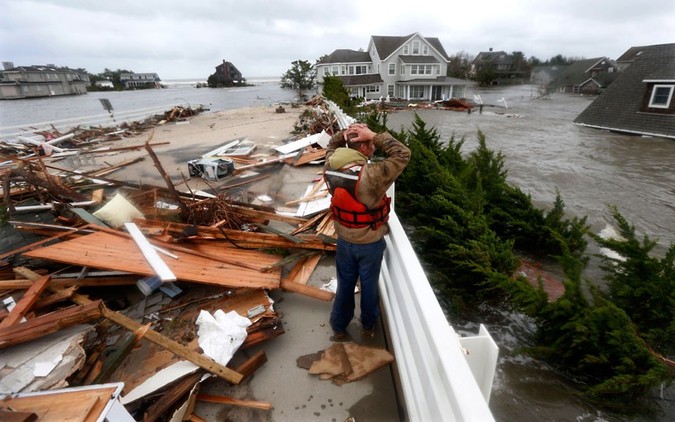 Mantoloking, New Jersey, October 30, 2012.
Mantoloking, New Jersey, October 30, 2012.The following was published in the Biddeford-Saco Journal Tribune Sunday edition, 8/30/2015. (Continued from Remembering Katrina, Part I.)
Ten years ago this week, Category 3 Hurricane Katrina left nearly 2,000 people dead, hundreds of communities uprooted, and more than $100 billion in damage along the Gulf Coast. Adding in Superstorm Sandy’s devastation in October 2012, just two events swallowed the equivalent of: five months of Medicare spending, or two years of the federal education budget, or four years’ worth of the Federal Highway Trust Fund, our national gasoline tax-funded infrastructure bank that is now running on empty. So much money, washed out to sea.
A pint-size boy held a fishing rod alongside his dad, enjoying a quiet midweek morning by the pond, when more than a dozen cars pulled into the lot behind them. The automotive intrusion didn't exactly shatter a peaceful solitude — their fishing spot was beside a busy state highway after all — but the father and son may have been curious to know — Why the sudden crowd?
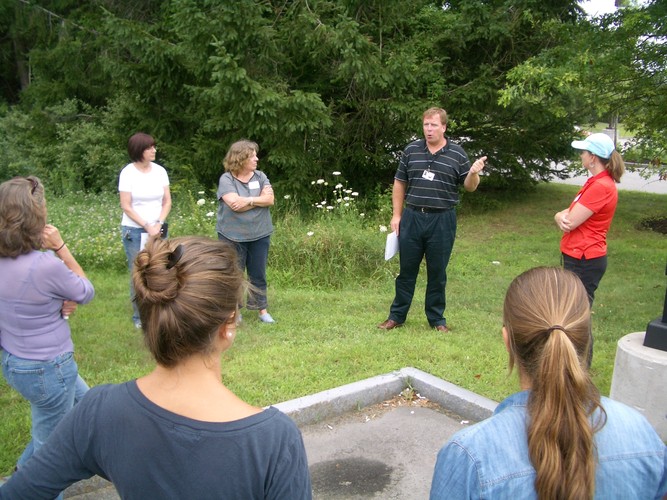 The arrivals were gathering to see Low Impact Development (LID) practices in use near Willand Pond in Somersworth, New Hampshire. The pond was a fitting spot to meet, given its history.
The arrivals were gathering to see Low Impact Development (LID) practices in use near Willand Pond in Somersworth, New Hampshire. The pond was a fitting spot to meet, given its history.
On October 5th the Coastal Training Program partnered with Protect Kittery Waters, Spruce Creek Association, FB Environmental, Robert's Maine Grill, and the Great Works Regional Land Trust to host a day-long field trip showcasing watershed restoration efforts on Spruce Creek and Shorey's Brook. The day began at Kittery Town Hall where Mary Ann Conroy (Public Works, Kittery) and William Straub (CMA Engineers) spoke about the tree box filter and raingarden they installed with Maine DEP 319 funding.
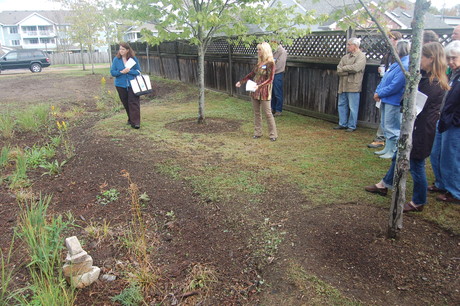
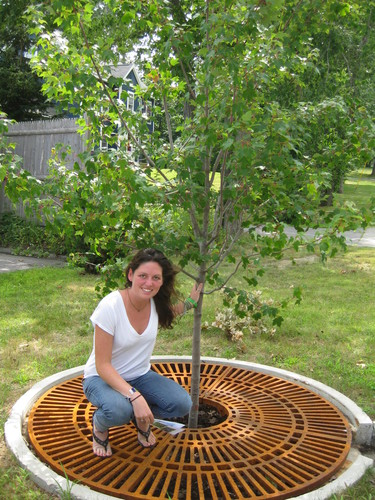 I had the chance to go to the annual Low Impact Development Field Trip this past Tuesday to do some research on how to make a difference in my neighborhood. The purpose of the trip was to showcase best management practices around the Acton Wakefield Watershed and Portsmouth, NH.
I had the chance to go to the annual Low Impact Development Field Trip this past Tuesday to do some research on how to make a difference in my neighborhood. The purpose of the trip was to showcase best management practices around the Acton Wakefield Watershed and Portsmouth, NH.
Flooding in York County — is it becoming more common? Roads impassable, bridges washed out, basements full... the stories have become all too familiar in recent years.
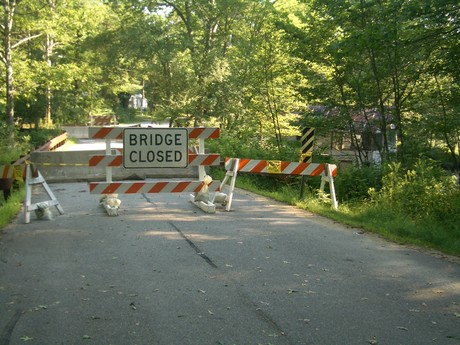 The Mother's Day storm in May 2006 seemed an anomaly till the Patriots' Day storm hit in 2007. This March, the Wells Reserve measured 16 inches of rainfall, 5 inches more than Portland's record-setting 11. The roads closed and the sump pumps hummed again.
The Mother's Day storm in May 2006 seemed an anomaly till the Patriots' Day storm hit in 2007. This March, the Wells Reserve measured 16 inches of rainfall, 5 inches more than Portland's record-setting 11. The roads closed and the sump pumps hummed again.
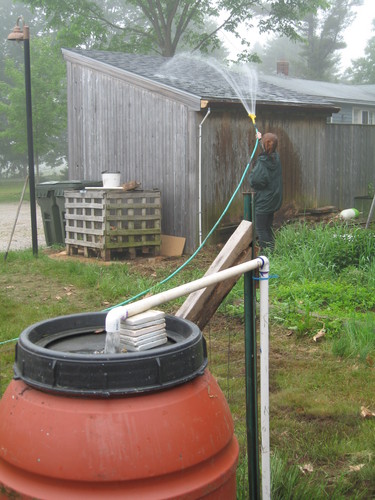 Rainwater harvesting can reduce flooding and erosion issues, as well as surface-water contamination, by slowing down and decreasing the volume of stormwater runoff. One way to harvest rainwater is by using a catchment technique such as rain barrels.
Rainwater harvesting can reduce flooding and erosion issues, as well as surface-water contamination, by slowing down and decreasing the volume of stormwater runoff. One way to harvest rainwater is by using a catchment technique such as rain barrels.
Danger seeps from your garden.
Fertilizer causes tomatoes to ripen larger and plants to grow taller. But applying more than your plants need can have a devastating effect.
The rain washes your excess fertilizer, either manure or chemical, down the road and into the nearest water source. There, it mixes with water traveling from other gardens, farms, and power plants to create a stream of nitrogen and phosphorus. The stream pours directly into the marsh.
A report evaluating the effectiveness of 12 stormwater treatments in protecting water quality and reducing runoff has just been released by the Cooperative Institute for Coastal and Estuarine Environmental Technology. The report is online here.